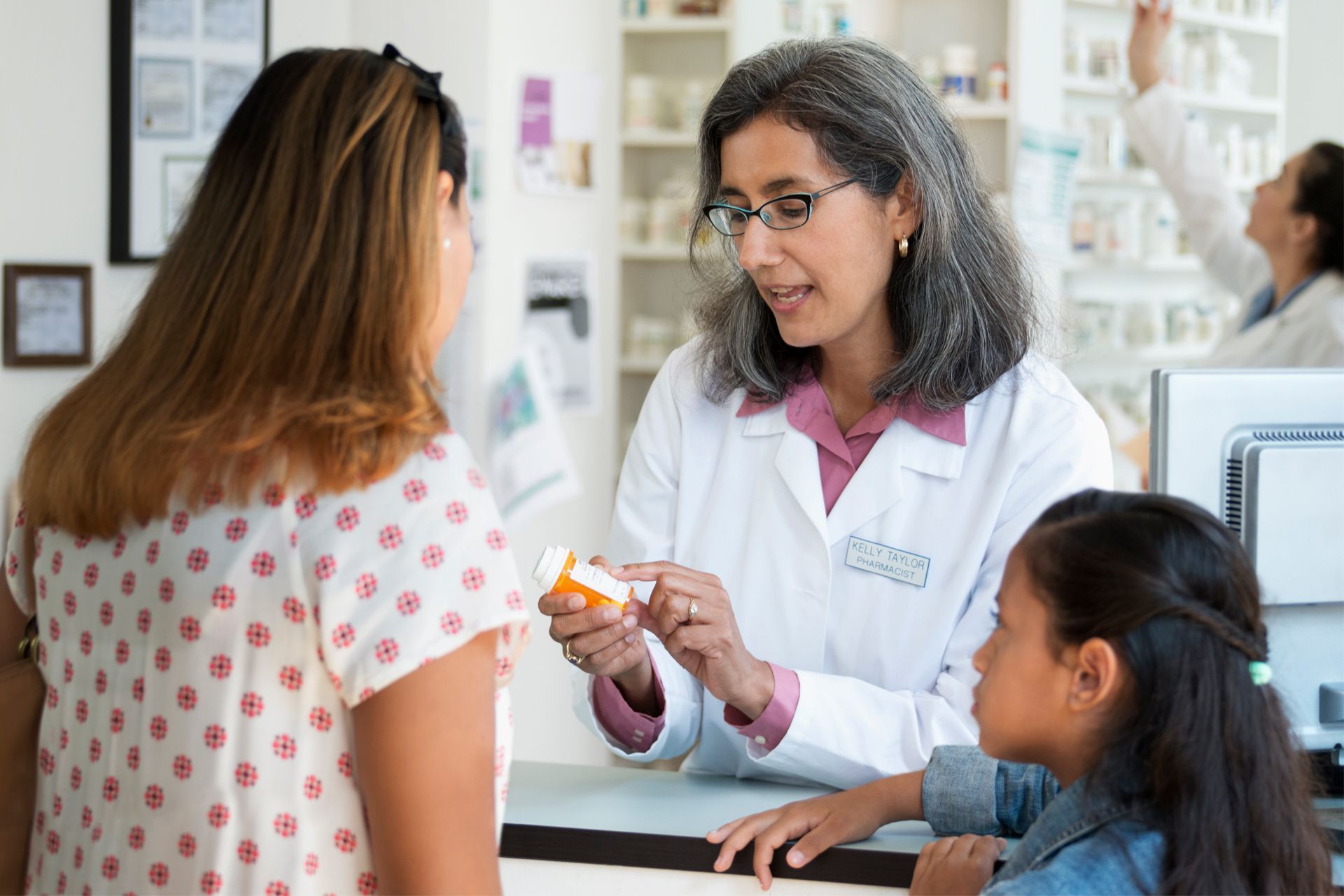
Pharmacy
When your doctor prescribes medicine to help with your treatment, you usually get the medicine at a pharmacy. You may have your prescriptions filled at a hospital pharmacy during a hospital stay and/or after your discharge. Or you can get medicines from a local pharmacy, which can be an independent business or part of a larger chain. These pharmacies often have other health-related items as well, such as supplements, bandages and durable medical equipment.
Pharmacies may offer additional services to help you understand your medicines and to make taking them easier and safer. Some of these services can include:
- Packaging—separating medicines into individual doses or grouping multiple medicines together
- Medicine therapy management—making a personalized medicine action plan based on all of your medicines and health needs, and providing information and resources to help you follow that plan
- Coordinating refills—scheduling refills so you can pick up all your medicines for the month at the same time (sometimes called “medicine synchronization”)
- Compounding—creating custom medicines to meet a unique need, like a special dose or a medicine without an allergen
- Health clinics—offering services like health screenings for blood glucose and cholesterol, resources to quit smoking and treatment plans for minor illnesses
- Vaccinations—providing vaccines to prevent diseases like the flu and HPV
Choosing a Pharmacy
To choose a pharmacy that will fit your needs, find out about:
- Inventory—Can you get all the medicines you and your family need at the pharmacy?
- Insurance—Does it accept your insurance?
- Costs—Does the pharmacy offer competitive pricing for the medicines you need? (Ask your doctor how to compare prices.)
- Services—Does it provide services you need or want to use, such as compounding or delivery to your home?
Ask Questions
Ask your pharmacist these questions about any new (and current) medicines you take:
- Why am I taking this medicine? How will it help? When will it start working?
- What dose? How often? How long?
- What is the best time (morning, night, etc.) or way to take it (with food, with water)?
- What are possible side effects? What do I do if they happen?
- Are there any foods, drinks or activities to avoid?
- What do I do if I miss a dose?
- How should I store it (in the dark, at a certain temperature, etc.)?
- How should I throw away unused doses?
Additional Resources:
U.S. Food and Drug Administration: www.fda.gov/drugs
MedlinePlus: www.medlineplus.gov
The AudioEye Trusted Certification represents a commitment to accessibility and digital inclusion.
Patient Guide Solutions, LLC
All Rights Reserved
